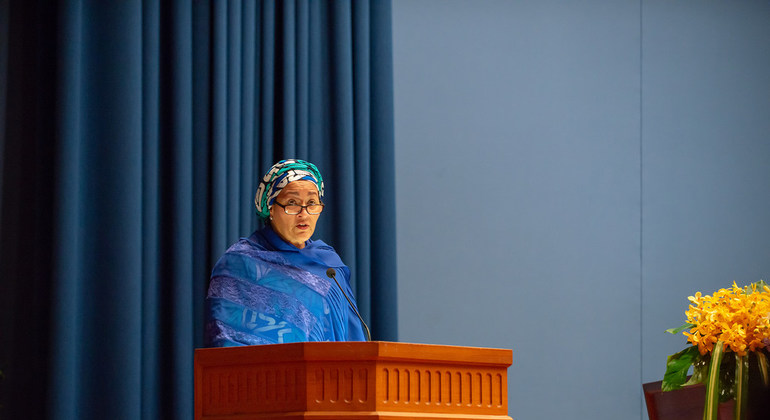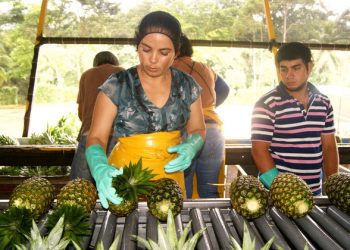Speaking at the opening of the Asia-Pacific Forum on Sustainable Development (APFSD) in Bangkok, UN Deputy Secretary-General Amina Mohammed expressed her admiration for the development progress made within the vast region so far.
“Your governments have taken on the challenge of the 2030 Agenda with decisive leadership…making significant investments to enhance data and statistical coverage, take partnerships to scale and promote people-centred policies, strategies and programmes,” she said in a keynote address.
Such efforts to reach the 17 Sustainable Development Goals (SDGs), however, are facing “major obstacles” she added, pointing to rising inequalities.
“Inequality of wealth, of access to basic services, and inequality in the ability to withstand setbacks and respond to the ravages wrought by climate change, are all on the rise,” said Ms. Mohammed.
There are abundant examples in [Asia-Pacific] that point the way forward for empowerment and inclusion of everyone – UN deputy chief, Amina Mohammed
According to the UN Economic and Social Commission for Asia and the Pacific (ESCAP) – which organized the Forum – the region’s women and girls have been the worst impacted, more than half of whom remain excluded from critical decision-making, and in some countries, close to a third of all young people lack jobs, education or training.
“It is a matter of urgency to empower our women and girls; to leverage the immense potential of youth for positive change and innovation; to reverse the trend on inequalities; and to put people and planet at the centre,” said Ms. Mohammed, adding that Asia-Pacific does not need to look very far.
“There are abundant examples in this region that point the way forward for empowerment and inclusion of everyone. But the question we must all address is: how can we increase ambition and accelerate implementation of the 2030 Agenda?” she added.
Increased investment will speed up progress to SDGs
Also speaking at the Forum’s opening, ESCAP Executive Secretary, Armida Alisjahbana, outlined key policy options that can help speed up SDG implementation in Asia and the Pacific, including scaling up resources for key social sectors and enabling people to shape the policies that impact them and their families
“To achieve the 2030 Agenda, increased investment is needed to quicken the pace of progress,” she said, adding that while the needs may vary in different countries, given the region’s size and diversity, “what is consistent is evidence that empowering people and ensuring inclusiveness and equality – the theme of this APFSD – can help accelerate progress towards all SDGs,” she underscored.
To achieve the 2030 Agenda, increased investment is needed to quicken the pace of progress – ESCAP head, Armida Alisjahbana
The opening day of the three-day Forum also saw the launch of the Asia-Pacific SDG Gateway, an interactive analytical tool developed by ESCAP, which assesses regional and sub-regional SDG progress, as well as a joint ESCAP-UNDP-Asian Development Bank report, exploring linkages between empowerment and sustainable development.
A subsidiary body of ESCAP, APFSD is a regional platform for countries to share perspectives, challenges and best practices in implementing the SDGs, and is also an opportunity for governments to discuss their Voluntary National Reviews, which will be presented later this year, at the High-level Political Forum for sustainable development, at the UN Headquarters, in New York.




